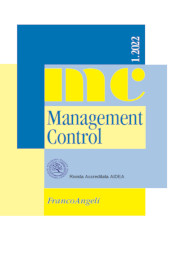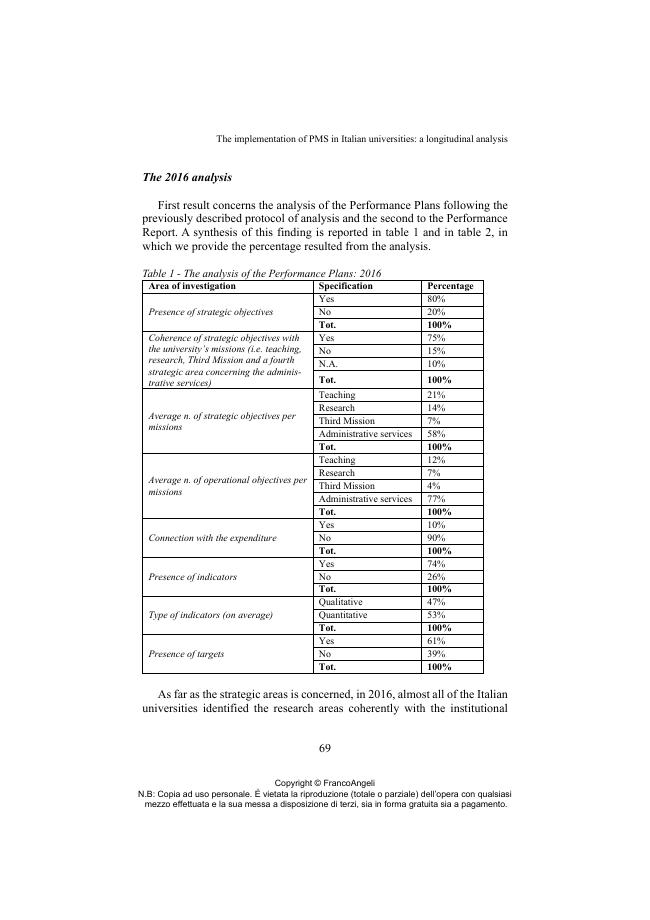The implementation of PMS in Italian universities : a longitudinal analysis
59-78 p.
Starting from the 1990s, the New Public Management (NPM) has been the most inspiring principle of public sector reforms in Europe. The Higher Education (HE) sector is among the different fields in which the implementation of NPM reforms have been controversial. Based on the NPM framework, most HE reforms have focused on enhancing universities' accountability and transparency through performance measurement and performance management (Rabovsky, 2014; Rebora and Turri, 2011). The effects of the implementation of this calculative technologies is, however, still under investigated (Arnaboldi et al, 2016). Using documentary analysis as research methodology, this paper investigates implementation trajectories of performance management system (PMS) in Italian universities (Marchi, 2015). Specifically, this is a longitudinal documentary analysis and it offers the results from a content analysis of the Performance Plan (PP) and the Performance Report (PR) of 66 Italian Universities in two periods, i.e. 2016 and 2018.
Furthermore, the longitudinal documentary analysis adopts the matrix from a previous study (Dal Molin et al., 2017), which matches the "quality of PMS" and the "expected use of PMS". The main objective of this study is to investigate if the "implementation gap" (Ongaro and Valotti, 2008) highlighted in previous studies (e.g. Dal Molin et al., 2017) has been fulfilled and in which elements it is possible to observe such improvement. As main result, the study shows that the implementation gap is still strongly present, from 2012 until now, and a formal compliance with the law still persists (Allini et al., 2020). There are areas of improvement related to external accountability and compliance, however, this is not supported by an internal use based on internal accountability (Tieghi et al., 2018). [Publisher's text].
Fa parte di
Management Control : 1, 2022-
Articoli dello stesso fascicolo (disponibili singolarmente)
-
Informazioni
Codice DOI: 10.3280/MACO2022-001005
ISSN: 2239-4397
PAROLE CHIAVE
- Performance measurement system, Higher Education, New Public Management, Accountability



